On November 26 in Hanoi, the Conference on Environmental Protection in Fisheries Activities in 2025 took place in coordination with the Department of Fisheries and Fisheries Surveillance ( Ministry of Agriculture and Environment ), the United Nations Development Program (UNDP) and the Embassy of Canada in Vietnam.
Attending the event were Deputy Minister of Agriculture and Environment Phung Duc Tien; Director of the Department of Fisheries and Fisheries Surveillance, Ministry of Agriculture and Environment Tran Dinh Luan; Canadian Ambassador to Vietnam, Mr. Jim Nickel and UNDP Representative in Vietnam, Ms. Ramla Khalidi.
Also attending were representatives from the Departments of Agriculture and Environment of provinces/cities, fishing port management boards, marine protected area management boards, research institutes, universities, businesses, associations and many international organizations such as WWF-Vietnam, IUCN, etc.
The event is within the framework of the Project "Smart Coastal Communities Adapting to Climate Change" (VN-CSCC) funded by the Government of Canada, and is also an important highlight in the journey of reviewing three years of implementing Project 911/QD-TTg on environmental protection in fisheries activities in the period 2021 - 2030.
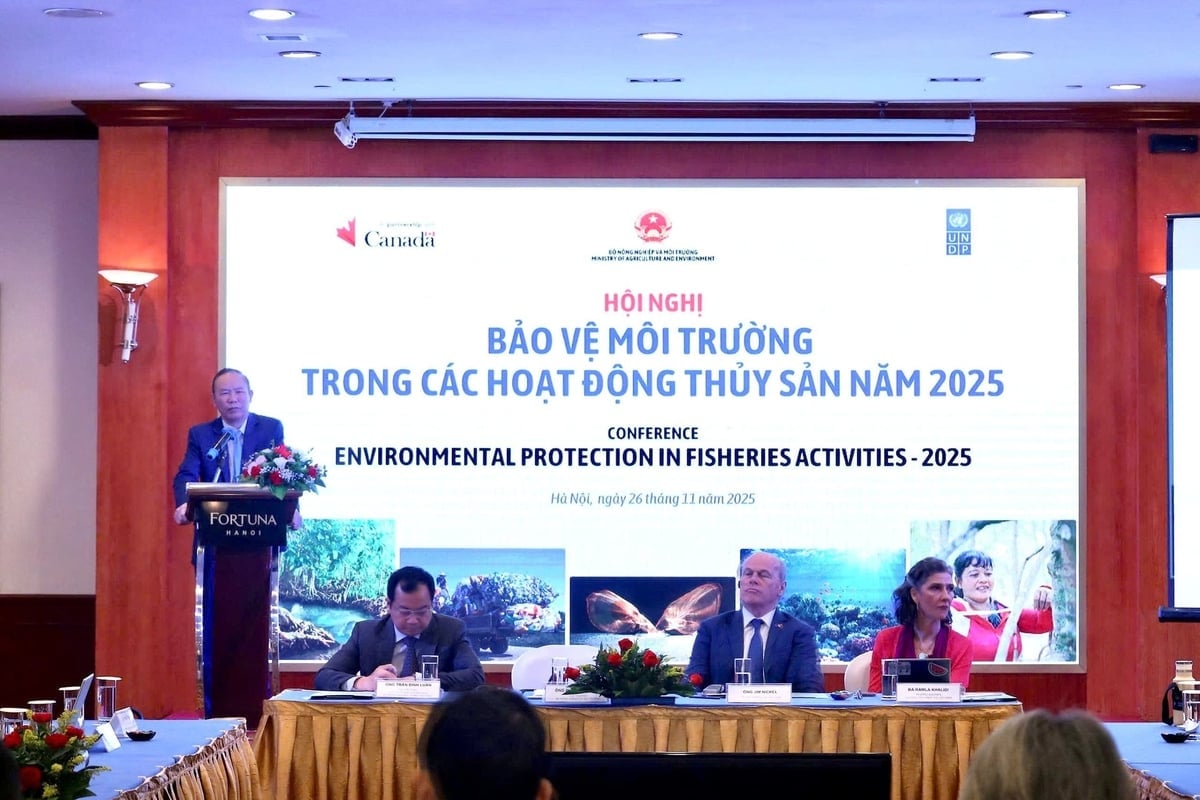
The opening session of the Conference on Environmental Protection in Fisheries Activities in 2025 took place on the morning of November 26. Photo: Hong Ngoc.
This conference is not only a technical summary but also a "progress checkpoint" for the 2022 - 2025 period, while also opening up in-depth discussions to orient strategic steps for the 2026 - 2030 period, a pivotal period for the fisheries industry to move closer to a green and circular development model.
In his speech, Deputy Minister Phung Duc Tien emphasized: The fisheries industry has risen to become one of the country's important economic sectors, contributing the third highest export value and being identified as one of the five key marine economic sectors, creating a breakthrough according to the Vietnam Marine Strategy to 2030. In the first 9 months of 2025, the total output reached 7.26 million tons, an increase of 3.2% over the same period in 2024; In the first 10 months of 2025, exports are estimated to reach 9.5 billion USD, an increase of 16% over the same period in 2024 and accounting for more than 7% of the global seafood trade market share.
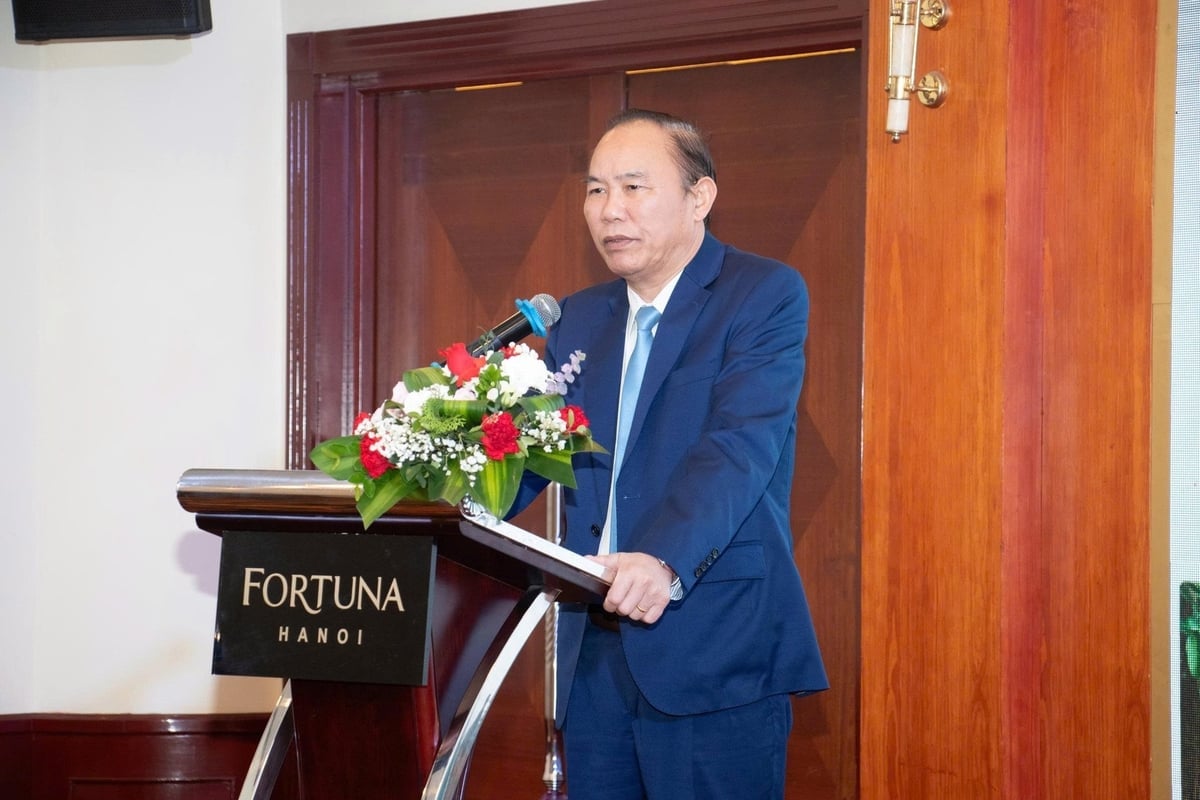
Deputy Minister of Agriculture and Environment Phung Duc Tien delivered a speech at the conference. Photo: Hong Ngoc.
However, this is still a production industry that depends heavily on resources and ecosystems, facing increasingly complex challenges such as the IUU yellow card, market fluctuations, international competition, the impact of climate change and especially the risk of environmental pollution - a factor that not only directly affects the quality of resources and fishermen's livelihoods, but can also arise from production activities if not strictly managed.
The Deputy Minister also affirmed that developing sustainable, responsible, and environmentally friendly fisheries is an inevitable path. Strengthening waste control, technological innovation, promoting digital transformation, and mobilizing the participation of the whole society will create a foundation for the formation of high-quality, high-value Vietnamese fisheries products at reasonable costs, both bringing economic efficiency and ensuring no harm to the environment and natural ecosystems.
In addition, the 2022 - 2025 period has recorded many important results of ministries, localities, associations, institutes and enterprises in implementing Project 911 such as: Pollution control in aquaculture - exploitation - seafood processing has been gradually improved; many innovative environmental models have been deployed, from waste monitoring, aquaculture management to technology application in environmental treatment; monitoring, warning and research on waste sources have been strengthened; the environmental data system serving the industry has been initially built in the direction of modernization.
In addition to the results, the conference also frankly reviewed the outstanding difficulties in implementing Project 911 such as unsynchronized environmental infrastructure, limited pollution control capacity in some localities, slow innovation in waste treatment technology and public awareness that still needs to be raised.
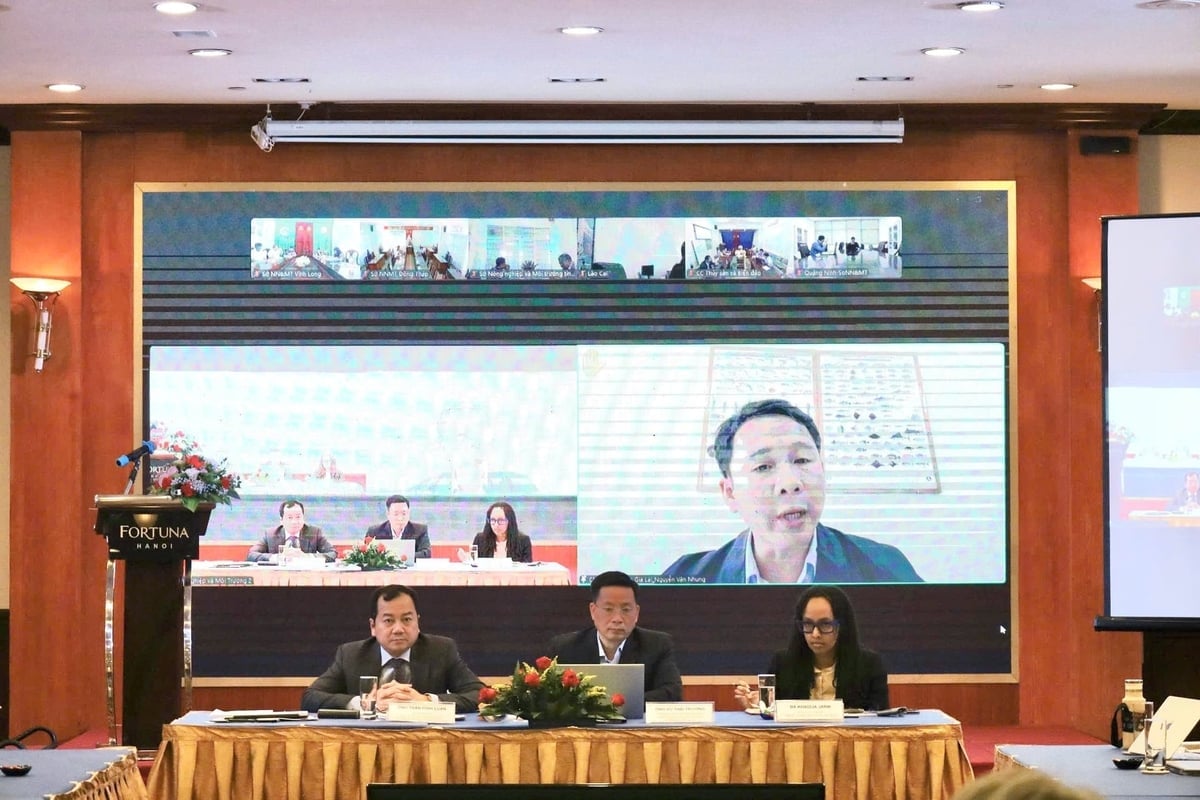
Delegates from the Department of Agriculture and Environment of Gia Lai province proposed solutions to marine pollution for the period 2026-2030.
Many delegates from Hanoi, Gia Lai, Hue, Can Tho... shared local perspectives and proposed solutions for the 2026 - 2030 period, in line with the task groups on environmental prevention - monitoring - treatment - restoration in Project 911.
Ms. Ramla Khalidi, UNDP Representative in Vietnam, affirmed: A sustainable marine economy not only has moral values but is also a wise economic choice for the future. UNDP affirmed that it will continue to accompany Vietnam in protecting the marine ecosystem, improving governance efficiency and preserving the livelihoods of millions of people attached to the sea. To go further, Vietnam needs to prioritize long-term investments in modern monitoring infrastructure, strengthen linkages between sectors, expand the role of the community and create conditions for businesses to participate in the spirit of considering sustainable development as a new growth driver.

Ms. Ramla Khalidi, UNDP Representative in Vietnam, shares cooperation orientations in sustainable marine economic development. Photo: Hong Ngoc.
The afternoon session focused on a topic of global concern: marine plastic waste management in the fisheries sector.
Representatives from IUCN, WWF-Vietnam, the Institute of Marine Research, localities and international organizations also shared experiences in implementing anti-plastic waste projects, collection and recycling activities, community initiatives and pilot models in Khanh Hoa, Gia Lai, Can Tho City, Hue City, etc.
The project “Smart Coastal Communities Adapting to Climate Change” (VN-CSCC), lasting from 2024 to 2030, has many components directly linked to Project 911 and Decision 687. These activities contribute to bringing Vietnam closer to international commitments on biodiversity, ecosystem restoration and sustainable fisheries development.
The conference ended with the consensus that environmental protection in fisheries activities is not only a state management task but also a common responsibility of the whole society.
The period 2026 - 2030 is identified as an acceleration period, where governance capacity, technological innovation, the role of localities and the fishing community will determine the success of the goal of building a "green - clean - responsible" fisheries industry.
Source: https://nongnghiepmoitruong.vn/nang-chuan-moi-truong-bien-trong-nganh-thuy-san-d786671.html




![[Photo] Close-up of heavy damage at the school located on the banks of the Ban Thach River](/_next/image?url=https%3A%2F%2Fvphoto.vietnam.vn%2Fthumb%2F1200x675%2Fvietnam%2Fresource%2FIMAGE%2F2025%2F11%2F26%2F1764152130492_ndo_bl_img-8188-8805-jpg.webp&w=3840&q=75)



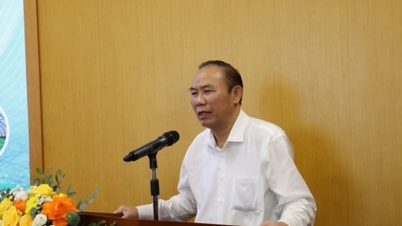
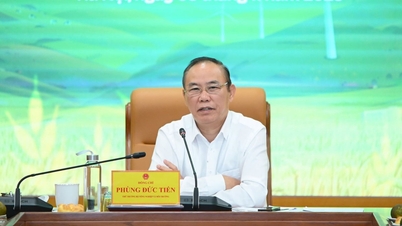



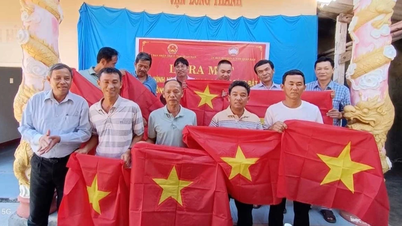



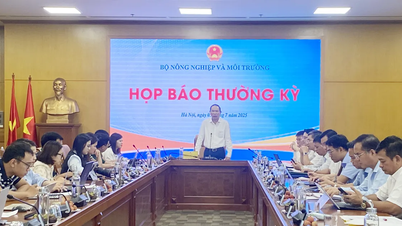

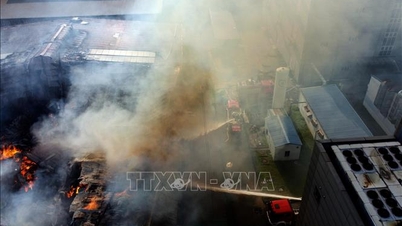

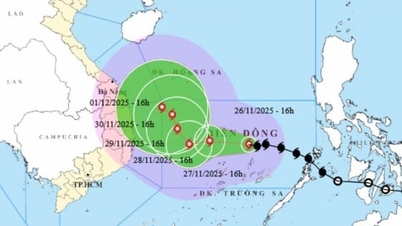
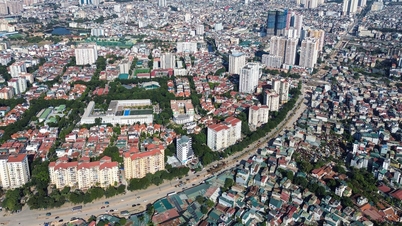

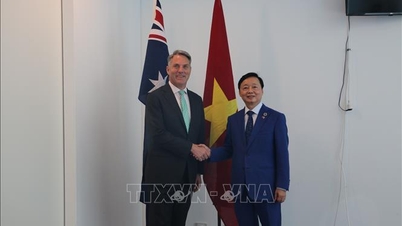
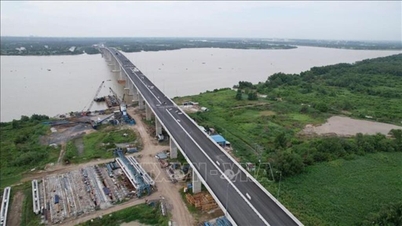




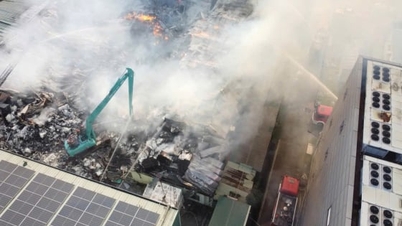
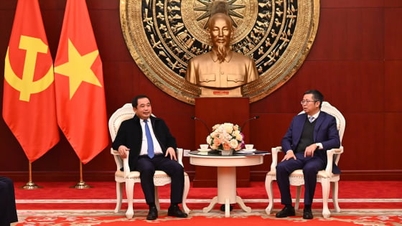

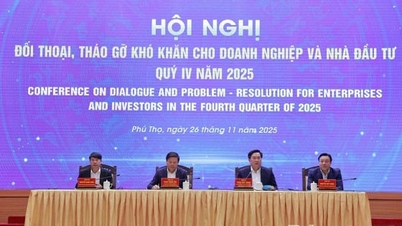
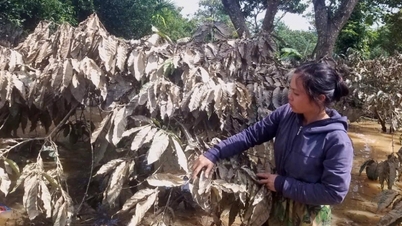
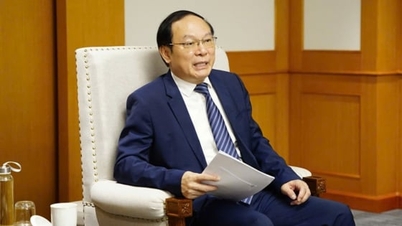


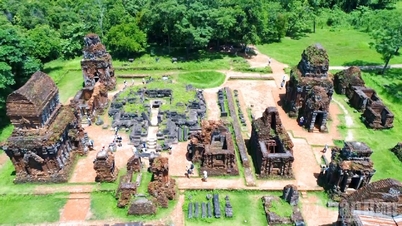

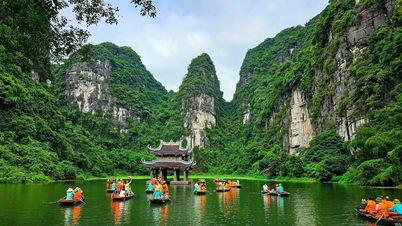




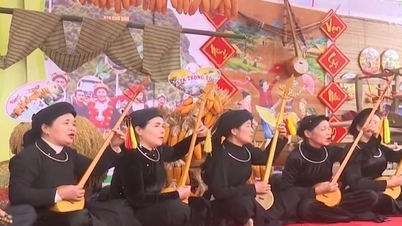

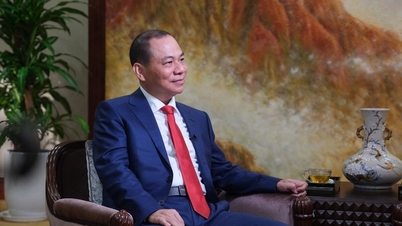

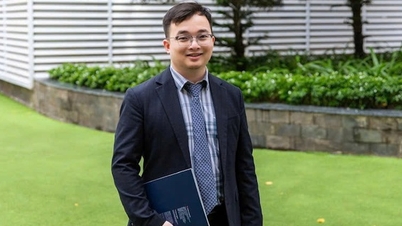

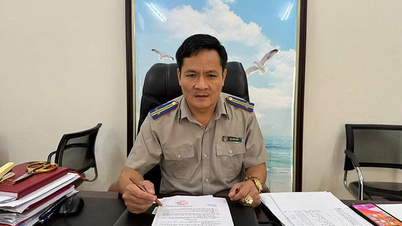

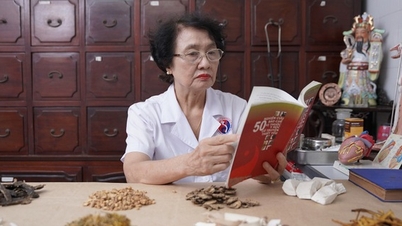

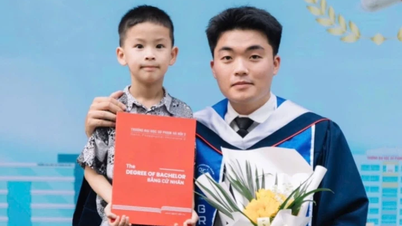

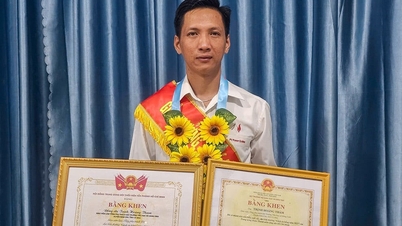

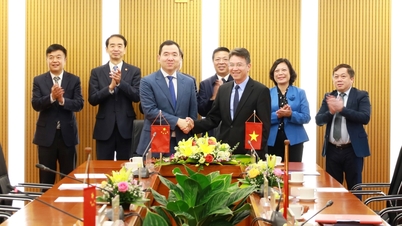


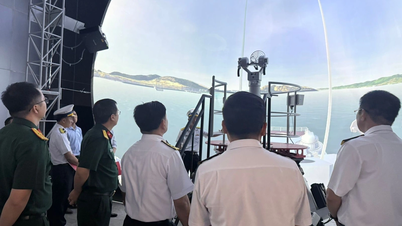
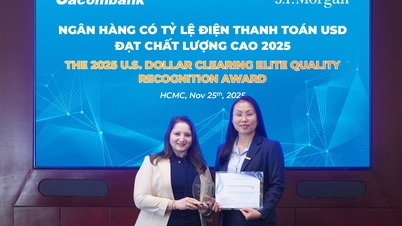

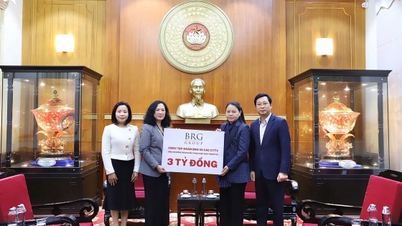
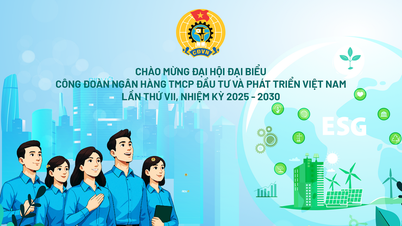






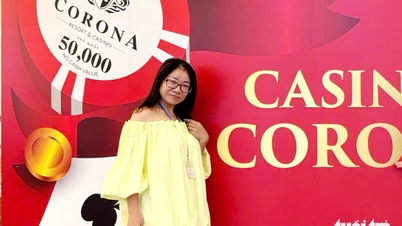


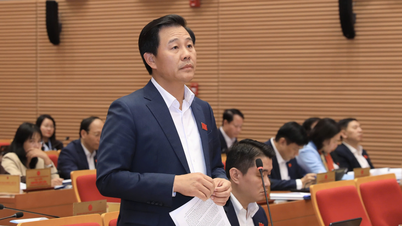
![[Photo] Opening of the 28th Session of the Hanoi People's Council](https://vphoto.vietnam.vn/thumb/402x226/vietnam/resource/IMAGE/2025/11/26/1764155991133_image.jpeg)



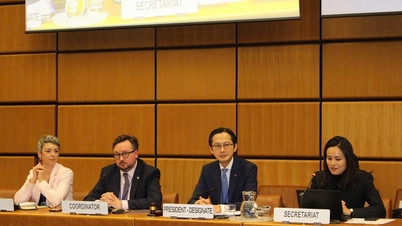

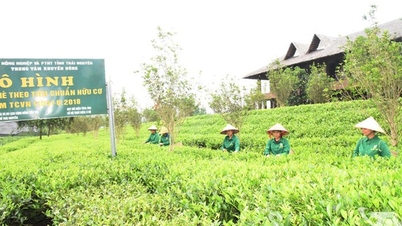
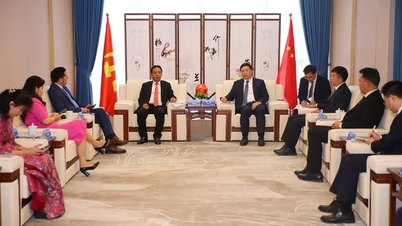
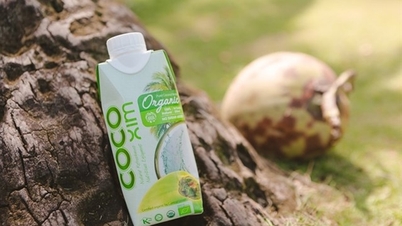


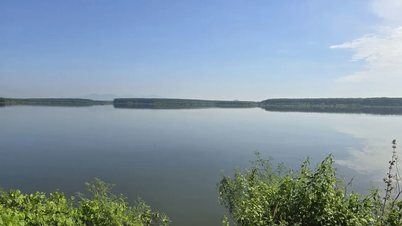
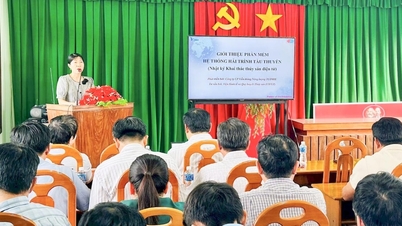

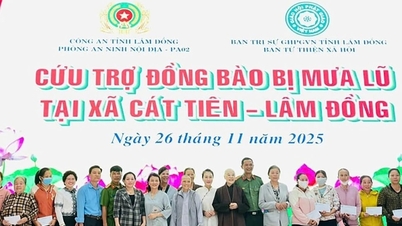
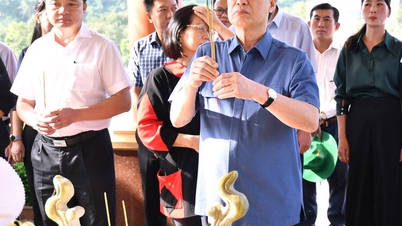



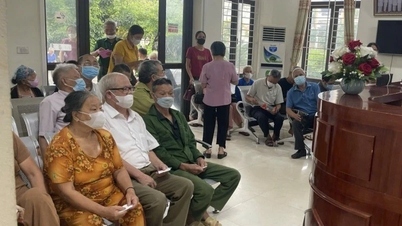











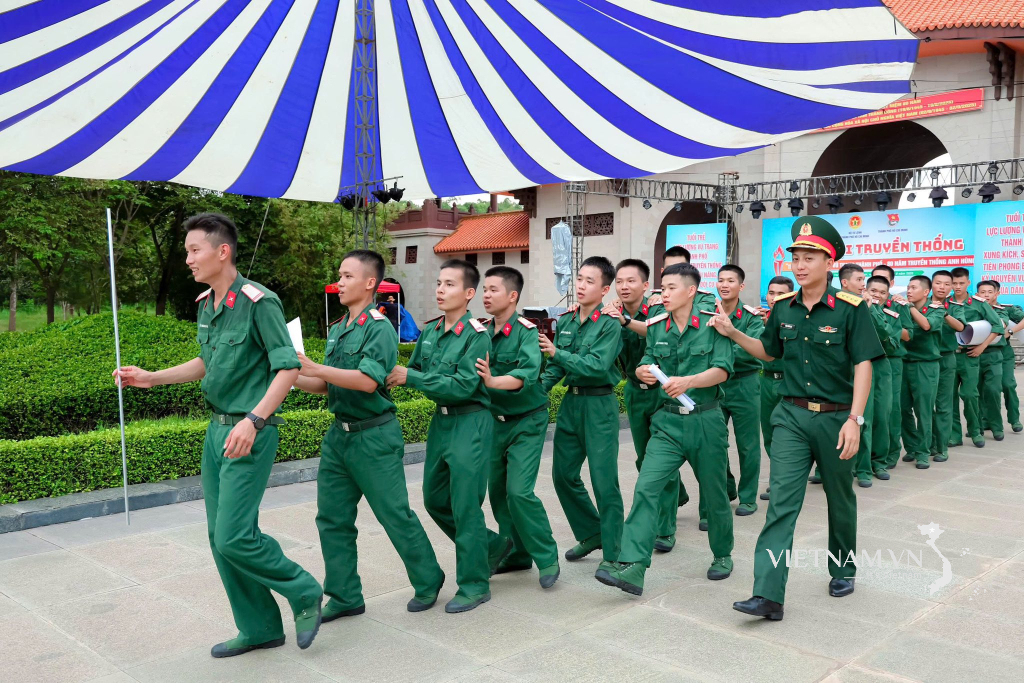

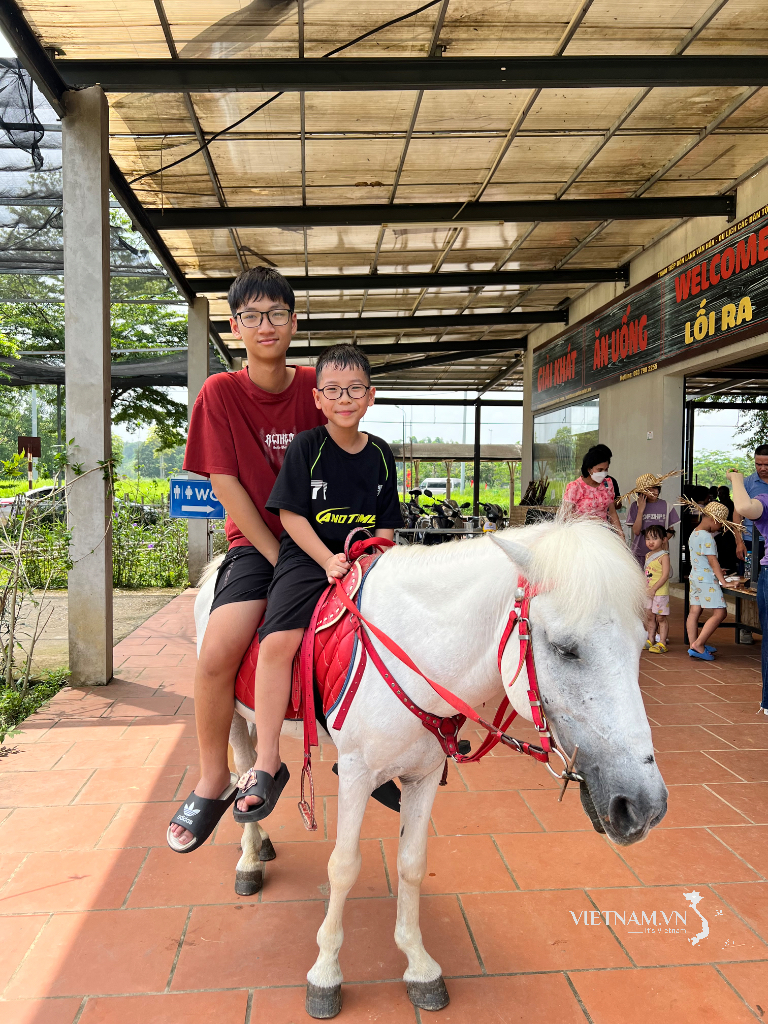
Comment (0)